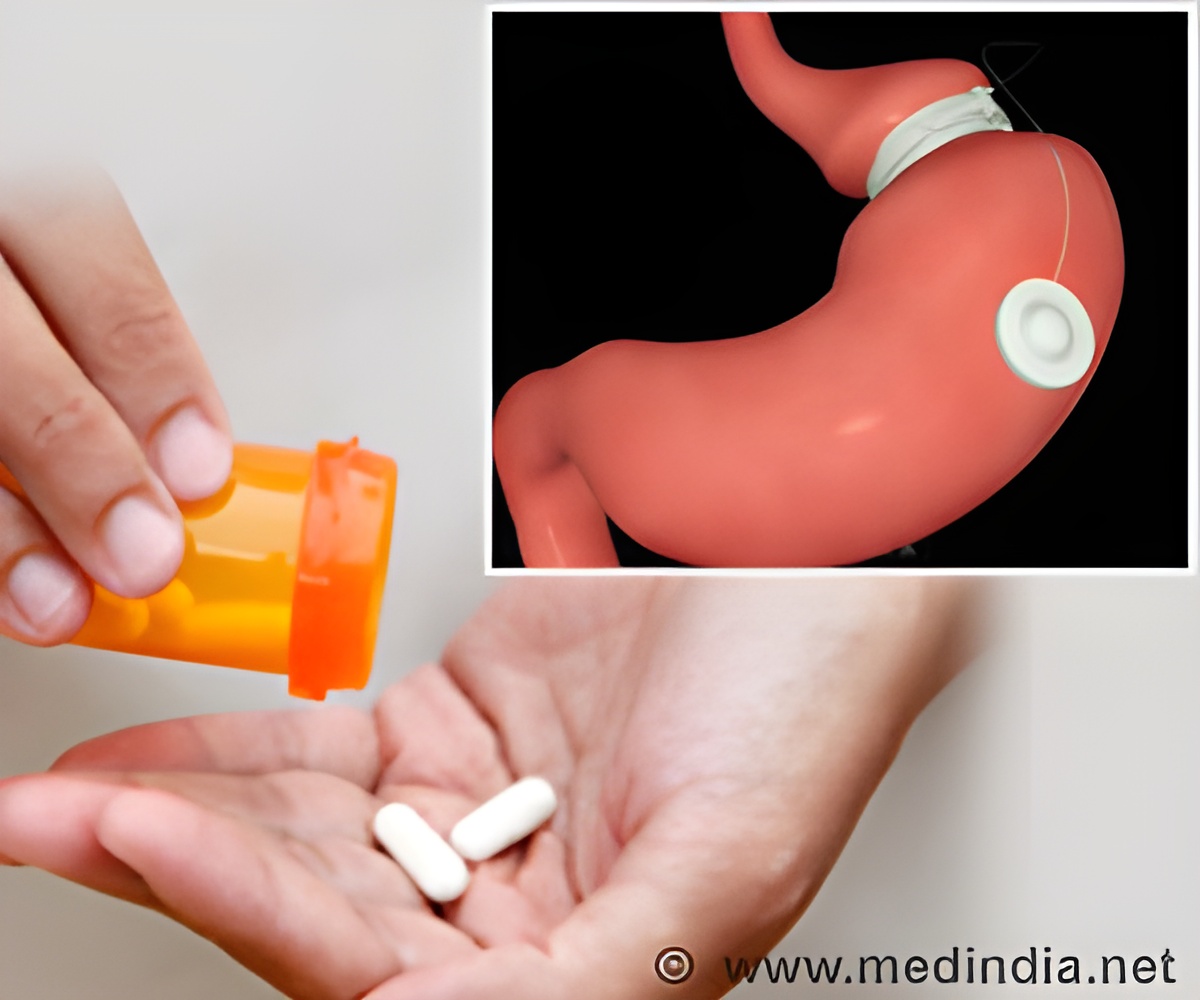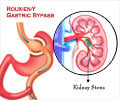Bariatric surgery is performed in obese individuals with BMI ≥40 kg/m2, or ≥35 kg/m2 with obesity-related health issues. Dosages of medications should be adjusted following bariatric surgery.

Bariatric surgeries include gastric restriction surgeries alone or combined with procedures bringing about some type of malabsorption in the gastrointestinal tract. Gastric restriction surgeries include laparoscopic adjustable gastric banding, vertical banded gastroplasty, and sleeve gastrectomy. In these surgeries, the size of the stomach is reduced, thereby reducing its capacity. The patient is thus able to eat only small portions of food at a time. In the laparoscopic adjustable gastric banding procedure, an inflatable band is attached around the stomach in such a way that the stomach is divided into an upper small pouch and a lower larger pouch. The small pouch gets filled early, giving an early feeling of satiety. In sleeve gastrectomy, most of the stomach is removed and only a narrow tube-like structure is left behind. Vertical banded gastroplasty involves stapling off a part of the stomach and using a band to create a narrow opening to the rest of the stomach.
Procedures that use both gastric restriction and malabsorption include Roux-en-Y gastric bypass and biliopancreatic diversion with duodenal switch. In Roux-en-Y gastric bypass, a bypass is created such that the food does not pass through the entire stomach and a part of the small intestine. In biliopancreatic diversion with duodenal switch, sleeve gastrectomy is performed on the stomach and a diversion for the food is created through the intestines.
Bariatric procedures not only affect the absorption of food, they also alter the absorption of various medications. Oral tablets are often broken down into finer particles and dissolve in the stomach, thereby enabling absorption of the medication in the digestive tract. A smaller stomach may interfere with the disintegration and dissolution of the drug. Some drugs are more soluble in the acidic pH of the stomach. These drugs will now spend shorter time in the stomach and a longer duration in the alkaline intestines. This could affect the disintegration, dissolution, and solubility of some medications. Oral liquid medications may be less affected by bariatric surgery, since they do not have to disintegrate and dissolve in the stomach. Sustained release and extended release tablets and capsules should also be avoided since these formulations pass through the digestive tract faster, and may get excreted without being absorbed.
Following weight reduction after bariatric surgery, the dosage of some of the medications may require reduction. Processes that could be affected following bariatric surgery include conversion of a prodrug into its active form and the passage of some drugs through the liver, which is required for their adequate action.
The effect of oral contraceptives may be reduced following bariatric surgery. In addition, fertility may be increased. Therefore, women in the reproductive age group following bariatric surgery should be advised other methods of contraception like barrier methods, intrauterine devices, vaginal rings, and injectable contraceptives.
Multivitamin supplementation with calcium and vitamin D is advised in the patients undergoing bariatric surgery to prevent deficiency and reduce the chances for osteoporosis. Calcium citrate is best absorbed and should be recommended in these patients. Other calcium supplements should be taken with food, to increase the acidity of the stomach and thereby absorption.
Thus, use of medications following bariatric surgery needs special consideration, often with an adjustment of dosages. Additional aspects like contraception need to be considered in women.
Reference:
1. Bariatric Surgery in Women: Medication Considerations; Holly Anderson et al; US Pharm. 2012;37(9):HS-12-HS-16.
Source-Medindia












